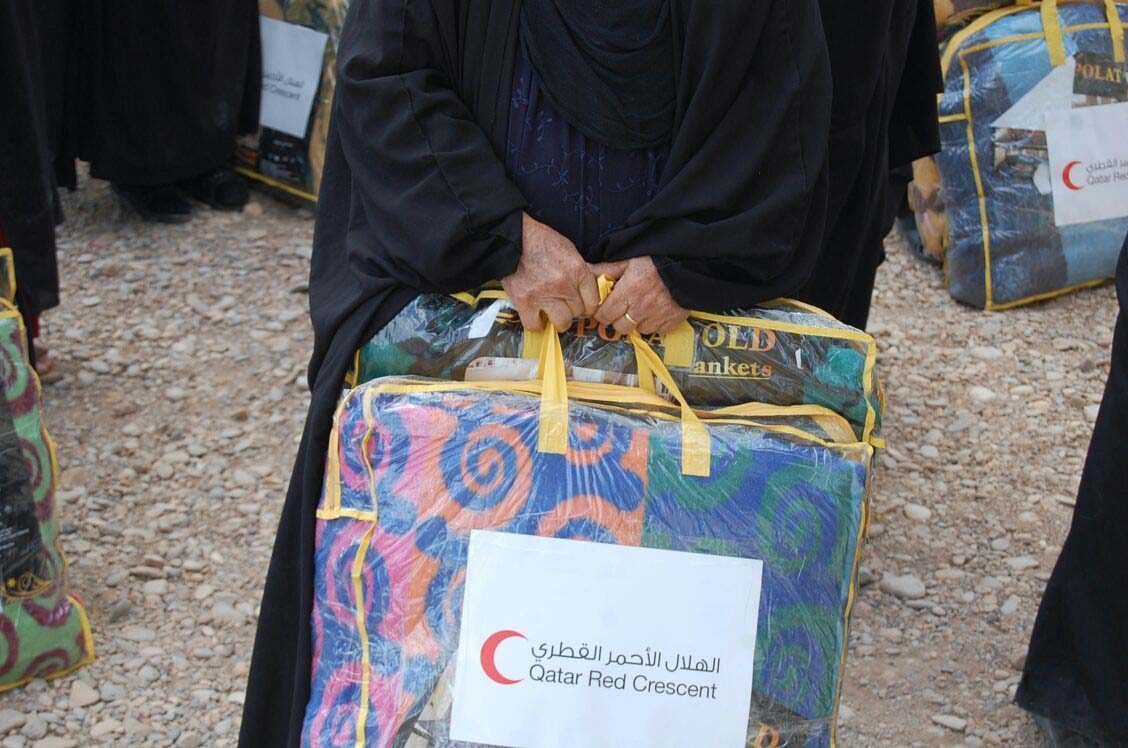
Qatar has risen more than 50 spots in an international index that measures a nation’s contribution to the “common good,” in large part due to its huge humanitarian contributions to countries in crisis.
This year, Qatar ranked 58th overall in The Good Country index, which scores 163 countries in terms of their contributions toward Science and Technology, Health and Wellbeing and Equality.
The report cited Qatar’s recent record of aid to countries like Yemen and Nepal, and to Syrians living in refugee camps around the region, as the main reason for its improved ranking.

Qatar came well above the UAE, which was 64th this year, followed by Oman at 80th, Saudi Arabia at 90th, Kuwait at 98th and Bahrain in 101st place.
This is a significant change compared to the 2014 list, when Qatar came in last among its GCC peers. Because Qatar figures were not updated last year, it scored the same in 2015.
Sweden, Denmark and The Netherlands are the top three “good countries” in the index this year.
Charitable donations
The Good report is significantly larger this year compared to 2014, with 38 more countries appearing on the list.
Qatar’s scores significantly improved in two specific areas of the index – World Order (65th, compared to 118th last year) and Health (33rd, compared to 78th last year.)
World Order considers things like charitable giving, refugees hosted and created, population growth and UN treaties signed.
Within this subsection, Qatar scored highly on charitable giving, the low number of refugees it generated and had a low birth rate.
However, it scored poorly on the number of refugees it hosts, something it has been criticized about before.

The Health category meanwhile looks at food aid, other humanitarian aid donations, voluntary donations to the World Health Organization and pharmaceutical exports.
While Qatar doesn’t manufacture many drugs, it did score very highly on its food aid and humanitarian donations.
While some of this data is old (the report is still using 2011 data for Food Aid, for example), the index also cites 2015 humanitarian aid data, which showed that Qatar made nearly $84 million in charitable donations to Yemen, Ethiopia, Syria, and Nepal.
It also supported a large number of projects for Syrian refugees in countries like Iraq and Turkey.
A significant amount of this aid is delivered via the Qatar Red Crescent, according to Financial Tracking Service data.
Room for improvement
Qatar did, however, fall down in some categories.
One of these was Science and Technology – in which the country slipped 41 places, coming in 153rd this year, compared to 112th last year.

The rating breakdown for this category showed poor scores for the number of foreign students studying in Qatar, the number of academic journals and publications published and the number of patents applied for.
The country’s global contribution to culture was also poorly ranked, in 87th place overall. Here, Qatar fared particularly poorly on press freedom and freedom of movement.
Methodology
The Good Country Index is the brainchild of British policy advisor Simon Anholt.
It attempts to measure how much each country contributes to the planet and to the human race as as a whole, relative to its size, which is measured using its Gross Domestic Product (GDP) score.

The Good Country Index does not measure how well a country is functioning internally – but rather focuses entirely on how each country affects its neighbors and the wider world.
“The Good Country Index isn’t interested in how well countries are doing, it’s interested in how much they are doing,” the index’s compilers explain on its website.
To compile the list, the index compilers used publicly available data from a broad range of sources, details of which can be found here.
As noted on the index’s website, some of the source data is from 2011 – half a decade ago – and this means that some of its rankings may not accurately reflect the current status of each country.
Thoughts?







